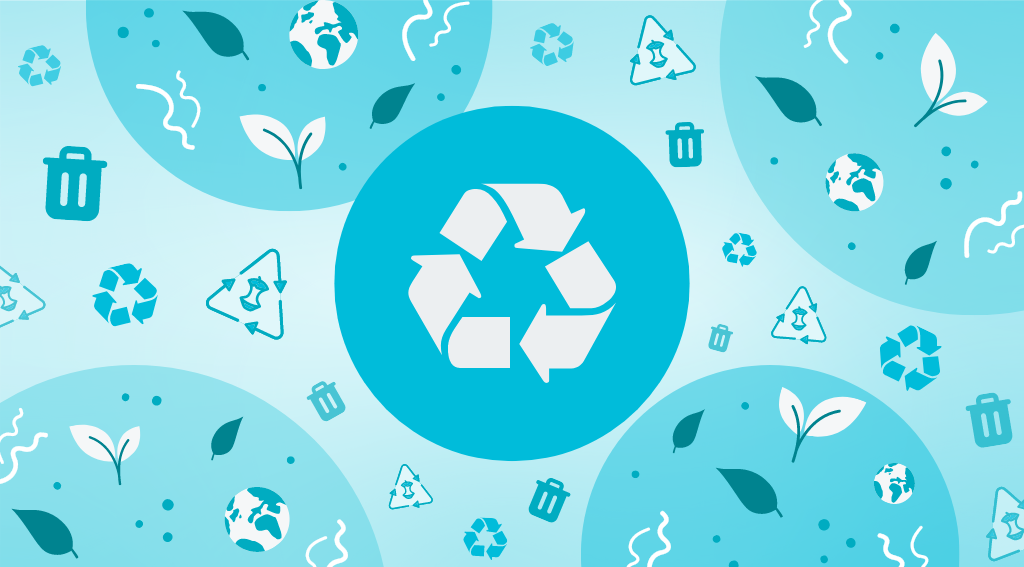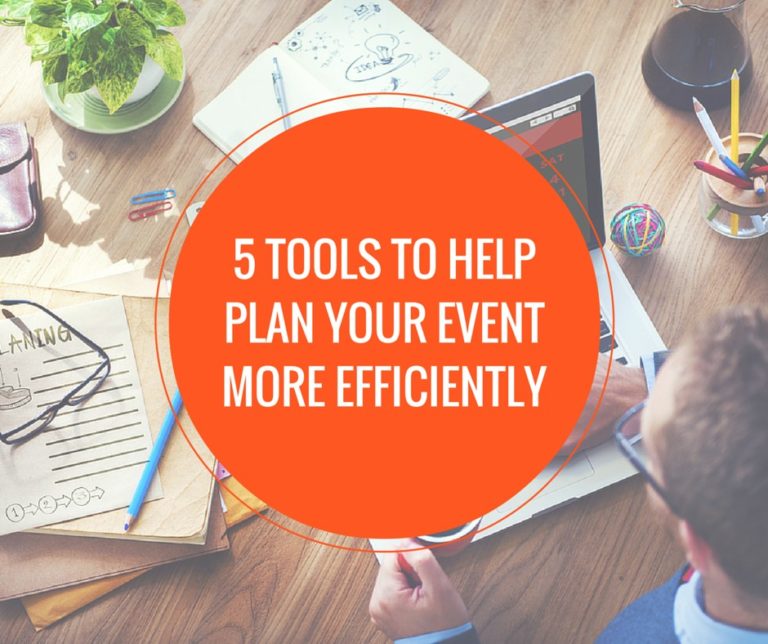As more and more companies are considering the environmental implications of business operations, hosting an event that doesn’t overproduce waste has become a priority.
Although it can seem nearly impossible to host a zero-waste event for multiple days catering to thousands of people, both small and large events can achieve zero waste status with the appropriate planning and waste efforts.
This complete guide will give you the necessary information on what a zero-waste event is, why they’re so important, and some helpful tips for planning your next zero-waste event.
Understanding the Concept of a Zero Waste Event
To host your first zero-waste event, you must familiarize yourself with the concept of zero-waste and what hosting one of these events entails.
For an event to be considered zero-waste, a minimum of 90% of the overall waste must be either composted or recycled rather than thrown away, ultimately ending up in a landfill.
This means that everything from the physical tickets you send out to the food waste produced by your event must be recycled, composted, or reused.
Although it can seem daunting to reach these waste goals, appropriate planning is the best way to ensure your event is as efficient and waste-free as possible.
Why It’s Important To Host a Zero Waste Event
Organizers who care about protecting the environment understand that it’s their responsibility to plan an event that won’t unnecessarily harm the planet.
When hosting an event, you must consider the waste generated by your supplies and by your venue, vendors, and guests. Without careful planning, items that could be composted or recycled may needlessly end up in a landfill.
In addition to reducing waste, hosting a zero-waste event shows your commitment to being a good steward of the earth and reflects well on your business’s environmental commitments.
By committing to a lower consumption of single-use plastics, proper waste disposal, and partnering with vendors who do the same, you can decrease your contribution to the amount of waste generated yearly from events.
7 Tips for Creating a Zero Waste Event Plan
Consider the following tips when creating your zero-waste event plan.
Determine the Size and Type of Your Event
The most significant event elements that will impact how much waste is produced are the type of event you’re hosting and how many people attend. Therefore, to create an effective plan to cut waste down, you’ll need to consider what your event will entail.
There are many types of events. The event you host will dictate what type of waste will be produced and how you can best reduce it. While there is no one-size-fits-all solution for hosting a zero-waste event, determining what your primary source of waste will be is the first step in figuring out how you can eliminate it.
In addition to determining your event type, you will need to estimate the size of your event. For example, if you’re hosting an intimate event with only a few guests you’ll have significantly more control over waste reduction, while events with hundreds or even thousands of guests can raise significant challenges.
By determining the type and size of your event, you can establish a better plan from the beginning to avoid throwing away more than 10% of your overall waste.
Estimate the Amount of Waste That Could Be Generated
To better understand what steps you’ll need to take for your event to be considered zero waste, you’ll need to estimate how much waste will be produced. Determining the amount of potential waste will depend on a variety of factors:
- The type of event you’re hosting. The type of waste that will be produced will directly depend on the type of event you’re hosting. For example, if you’re hosting a dinner, your waste will primarily consist of items like utensils and food. However, events like art shows and concerts often use large quantities of items like plastic cups and paper napkins.
- The duration of your event. You will use significantly more waste for events that last multiple days than for an event that is only a few hours long. Consider how your event’s length will impact the amount of waste produced.
- How many people are invited. The amount of waste produced directly correlates to the number of attendees.
Once you have an idea of how much waste might be generated by your event, you’ll have an easier time developing a waste management plan.
Use Food Services That Recycle Event Waste
Partnering with food vendors who share your desire to host zero-waste events is essential to reducing unnecessary landfill contributions.
Every event will require some element of food service, even if it’s simply setting out drinks or snacks. Selecting purveyors committed to your environmental standards will ensure your event is zero-waste.
Consider partnering with local vendors who don’t require plastic packaging to transport food and those using reusable serving utensils or biodegradable ones. Large amounts of packaging associated with food transportation can drastically increase the waste your event produces.
Buy Supplies From Companies That Reuse
In addition to reducing the overall waste produced directly by your event, you must be mindful of the indirect waste produced by the companies you purchase supplies from. When you source the supplies needed for your event, consider partnering with businesses that use reusable materials.
Event rental companies are ideal for reducing waste. They may be an excellent place to purchase supplies, as they’re likely to have reusable items (e.g., tablecloths, napkins, utensils) that you can rent rather than buy.
By purchasing supplies from vendors that offer reusable materials and avoid single-use plastics, you’ll be able to lower the waste levels indirectly produced by your event.
Commit to Avoiding Landfill Trash
To reduce your event’s overall waste, you can avoid using items that may end up as landfill trash. Instead, consider taking the following steps:
- Use reusable plates, silverware, and cups. If your event isn’t suitable for reusable items, consider opting for compostable tableware.
- Reduce waste from single-use paper items (even if they’re recyclable) by opting for digital invitations, tickets, signs, etc., whenever possible.
- Cut down on food waste whenever possible. Offer guests appropriate portions of food and consider avoiding a buffet-style event. Be sure to have a composting plan to reduce the amount of uneaten food that would otherwise go to a landfill.
- Avoid using materials like styrofoam at all costs: they never decompose.
- To further show your commitment to zero-waste principles, you can lower the environmental impact of your event by encouraging guests to carpool and offering shuttle services.
Provide Recycling Bins for Attendees
One of the easiest ways to ensure guests do not overuse trashcans is by providing accessible recycling bins.
If you plan to serve beer in aluminum cans or glass bottles at your event, for example, you will need to offer recycling bins in addition to trashcans to ensure that these items make it to the appropriate recycling facility rather than ending up in a landfill.
Hosting a zero-waste event without recycling bins is nearly impossible unless you plan to go through the garbage at the end (which is not recommended). To ensure that guests always dispose of their recyclable waste appropriately, simply place a recycling bin next to every trash can or provide designated recycling stations.
In addition to recyclable waste, consider using compost bags so guests can responsibly dispose of any food waste. Food items quickly add up in trash cans, and committing to a zero-waste event will require you to dispose of food waste properly.
Work With an Event Planner
Hosting any event can be exhausting, and preparing for every eventuality can be difficult when planning a zero-waste event. Consider working with an event planner to ensure that your event conforms to zero-waste standards.
Event venues and organizers have the industry knowledge and connections to help your ideas come to life, which means you can rely on their expertise and skip much of the research portion of your event planning.
Zero-waste events require a lot of upfront planning to ensure that garbage doesn’t pile up, and your event can quickly exceed the 10% landfill limit if you don’t implement these principles in your planning stages.
Furthermore, event organizers know about factors you may overlook, such as where to place recycling and composting stations to ensure that event guests use the appropriate receptacles.
Event cleanups can often result in overusing trash bags that will automatically go to a landfill, so relying on an event planner can help ensure that the final stages of your event also meet zero waste standards.
How You Can Automate Your Event Planning
Whether you’re hosting a trivia night or a multi-day music festival, hosting a zero-waste event takes significant planning to find the right vendors and implement the appropriate waste programs. Automating your event planning with Events.com can help you manage all aspects of hosting your zero-waste event, from creating an event page to tracking ticket sales. Start planning your zero-waste event today!







